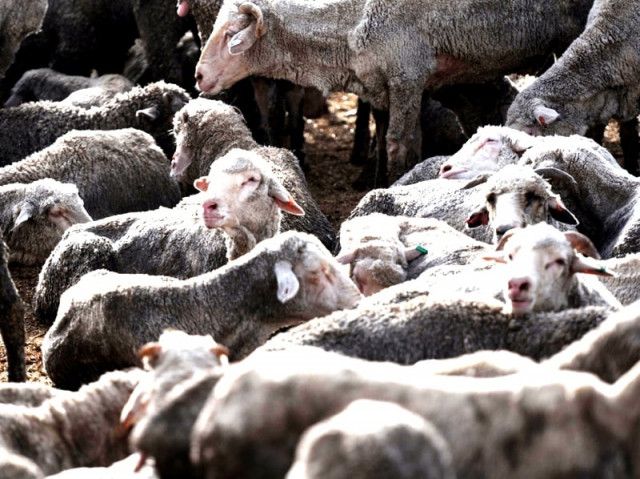Bahrain returned sheep due to presence of Orf disease: Pakistan envoy
Expert claims samples drawn from the sheep for testing were never tested for Orf disease.

This was submitted in a report by Deputy Attorney General before a division bench, which is hearing the importer's petition against culling of 21,000 sheep imported from Australia upon refusal by Bahrain.
Petitioner Tariq Mehmood Butt claims that provincial livestock officers had declared his healthy animals unfit for human consumption on the basis of medical reports issued by incompetent government veterinary laboratory. The Karachi Metropolitan Administration had started culling the sheep based on these reports.
In his report, Ambassador Jauhar Saleem said that his deputy had approached the Bahrain Assistant Undersecretary of Agricultural Affairs to seek an explanation on why the country had refused to allow the offloading of sheep. Saleem said that Bahraini authorities inspected the sheep prior to offloading, as per existing practice for live and frozen imported livestock. Their inspections discovered that some of the sheep were infected with Orf and, therefore, the shipment was refused and returned. The Ambassador's report added that any supporting medical reports and findings could be shared once the Bahraini Undersecretary returns from his foreign visit, on October 17, 2012.
Advocate Anwar Mansoor Khan also filed an affidavit of Dr Nazeer Hussain Kalhoro, the Director at Sindh Poultry Vaccine Center. The affidavit said that 1800 samples were drawn from 100 sheep by a team of experts constituted on orders of the SHC. These samples were then preserved as per international guidelines and sent abroad for testing at UK-based laboratory.
"It is interesting that the controversy before provincial labs was over five diseases – Anthrax, Salmonella, E.coli, Actinomyces (lumpy jaw disease) and Orf/mouth scabby disease. However, the samples were not tested for any of the above disputed diseases," he concluded in his affidavit.
After hearing arguments, SHC division bench headed by Justice Maqbool Baqir adjourned hearing till October 18, 2012.



















COMMENTS
Comments are moderated and generally will be posted if they are on-topic and not abusive.
For more information, please see our Comments FAQ